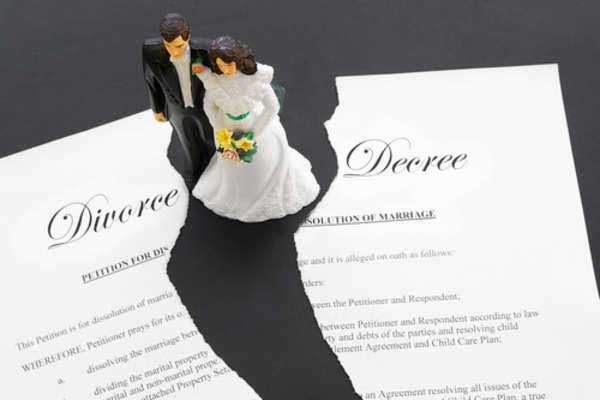Divorce Process in Colorado
Guide to the Divorce Process in Colorado
Finding out about the exact steps involved in getting a divorce can be overwhelming. Depending on how you and your spouse choose to handle your divorce, the divorce process in Colorado can be handled in three different ways: by contest, by agreement, and by default. Each process is associated with different costs and will take varying amounts of time. This guide will explain each of the ways in which the divorce process in Colorado can move forward so that you can choose the divorce that will work best for you and your spouse.

Divorce by Agreement (Uncontested Divorce)
The simplest kind of divorce process in Colorado is called an uncontested divorce. If you and your spouse can come to a fair agreement about how to divide your property and your parental responsibilities, you may be able to file for an uncontested divorce.
This process is relatively inexpensive and can be handled without lawyers if you and your spouse don't want to get legal representation. You may also seek out mediation during a contested divorce to try to negotiate a settlement, which will make your divorce into a simpler procedure. Mediation involves a trained mediator helping you to negotiate an agreement that is acceptable to both of you. This mediator can help you to get past emotional problems so that you can work together to figure out equitable solutions.
Divorce by Contest (Contested Divorce)
Spouses who cannot agree on the terms of their divorce will need to pursue the more expensive and time-consuming option of divorce by contest. This divorce process in Colorado includes a full civil trial, with all the steps of legal process that a civil trial involves. A complaint and summons will be served by one spouse to the other, and the discovery process will begin.
Discovery is an intensive investigation by each spouse into the other spouse's finances and parenting, and can make divorces take a long time. The trial, as well, with all its associated motions, witnesses and paperwork, will be expensive. You should consider whether the divorce process in Colorado might be better handled by agreement in your situation.
Divorce by Default
In both contested and uncontested divorce situations, paperwork will need to be served to one spouse. If the spouse who is served the paperwork does not respond, the process of divorce by default will begin. This divorce process in Colorado generally occurs when one spouse has abandoned the other or refuses to sign any divorce paperwork. If the other spouse's address is unknown, a notice will be published in your local newspaper for a specified number of weeks so that you can still seek your divorce.
If you have been served with divorce papers in Colorado, refusing to do anything more will result in a divorce by default for your spouse. If this happens, your spouse will receive anything that was asked for in the divorce petition, so make sure the terms of the petition are something you can live with. If they're not, you will want to contest the divorce by filing a response as soon as possible.